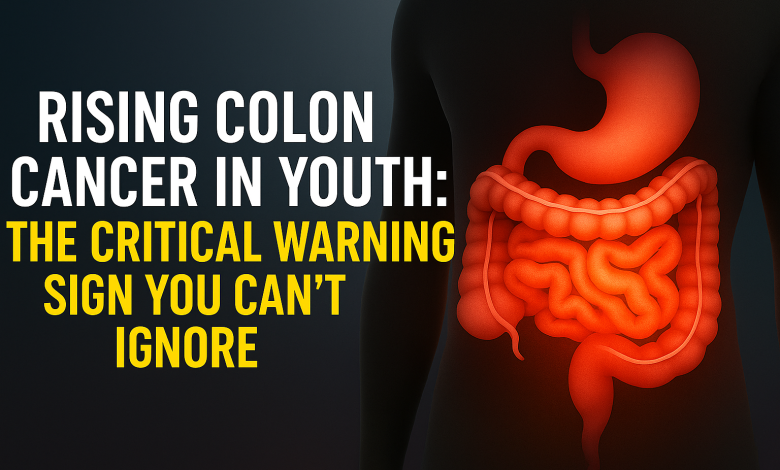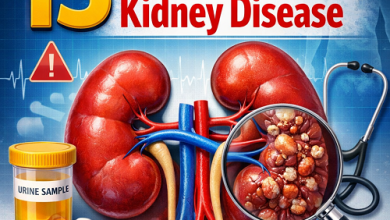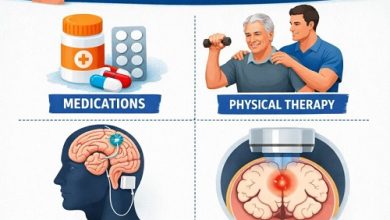Rising Colon Cancer in Youth: The Critical Warning Sign You Can’t Ignore

Cancer is often perceived as a disease that affects people later in life. For decades, the common assumption was that colon cancer primarily impacted individuals over 50. However, recent medical findings are shaking that belief to its core. An alarming trend has emerged: colon cancer is rising at an unprecedented rate among young adults in their 20s, 30s, and early 40s.
This is not just another health headline—it’s a wake-up call. Many young people dismiss early symptoms, attributing them to stress, poor diet, or everyday digestive issues. Unfortunately, this delay in recognition often leads to late diagnoses, making treatment more complex and decreasing the survival rate.
The rise of colon cancer in young people, why it’s happening, the signs you absolutely cannot ignore, and the proactive steps that can save lives. Whether you’re concerned about your health, that of a loved one, or want to stay informed, this message is urgent and personal.
The Silent Rise of Colon Cancer in the Young
Over the past two decades, oncologists have noticed a troubling shift. While colon cancer cases among older adults are decreasing due to better screening and awareness, cases among younger people are climbing.
- According to the American Cancer Society, the rate of colon cancer in people under 50 has nearly doubled since the 1990s.
- Many of these cases are diagnosed at advanced stages because young adults rarely consider cancer as a possibility.
- In fact, studies show that young patients often wait months—sometimes years—before seeking help for their symptoms.
The result? Colon cancer is now one of the leading causes of cancer-related deaths in young adults.
Why Is This Happening?
The rise of colon cancer in youth is puzzling even to experts. Several factors are believed to play a role:
1. Diet and Lifestyle
Modern diets are often high in processed foods, sugar, and red meats while being low in fiber. Combined with sedentary lifestyles, this creates a “perfect storm” for digestive system damage.
2. Obesity and Metabolic Issues
Obesity, insulin resistance, and other metabolic problems are strongly linked to increased cancer risk. With obesity rates rising among young people, colon cancer risk has also surged.
3. Environmental Factors
Chemicals in food packaging, preservatives, and even pollution may be contributing to genetic mutations that trigger cancer growth.
4. Genetics and Family History
While genetics alone don’t explain the sudden surge, hereditary syndromes like Lynch syndrome or a family history of colon cancer can increase risk.
5. Delayed Screening
Most colon cancer screenings, such as colonoscopies, traditionally start at age 45. That leaves younger adults unprotected unless they recognize the symptoms early.
The Warning Signs You Can’t Ignore
One of the scariest aspects of colon cancer in youth is that its symptoms often mimic common digestive problems. Many brush them off as irritable bowel syndrome (IBS), hemorrhoids, or stress-related issues.
Here are the critical warning signs:
- Persistent changes in bowel habits (diarrhea, constipation, or narrower stools lasting more than a few weeks).
- Blood in the stool or rectal bleeding, even if mild.
- Unexplained weight loss without changes in diet or exercise.
- Fatigue and weakness, caused by anemia from internal bleeding.
- Abdominal pain or cramping that doesn’t go away.
- Feeling that your bowel isn’t empty after a movement.
If you notice these symptoms, do not delay. It’s far better to rule out cancer early than to discover it too late.
Emotional Stories That Highlight the Risk
To truly understand the urgency, we must look at real experiences.
- Case Study 1: The Athlete
A 29-year-old marathon runner ignored rectal bleeding for months, thinking it was hemorrhoids from running. When finally diagnosed, his cancer was already at stage III. - Case Study 2: The Young Mother
A 34-year-old mother of two dismissed her abdominal cramps as postpartum stress. By the time she sought help, the tumor had spread to her liver.
These stories are not meant to scare, but to shake us into awareness. Colon cancer does not discriminate by age, lifestyle, or fitness level.
The Emotional Impact of Colon Cancer in Youth
A cancer diagnosis is devastating at any age, but for young adults, it carries unique burdens:
- Interrupted Dreams: Careers, studies, and plans suddenly halt.
- Financial Strain: Many young adults lack comprehensive health insurance.
- Emotional Trauma: Facing mortality in one’s 20s or 30s is psychologically overwhelming.
- Impact on Families: Parents, children, and partners are all affected.
This isn’t just a medical crisis—it’s a social and emotional one.
The Role of Awareness and Early Detection
The good news? Colon cancer is one of the most preventable and treatable cancers if caught early.
- Screening Saves Lives: Colonoscopies can detect and remove precancerous polyps before they turn deadly.
- New Guidelines: The U.S. now recommends colon cancer screening starting at age 45, but those with a family history may need to start earlier.
- Genetic Testing: For those with inherited risk, genetic counseling can be life-saving.
How to Protect Yourself and Loved Ones
You can take concrete steps to reduce your risk:
Lifestyle Choices:
- Eat a fiber-rich diet with vegetables, fruits, and whole grains.
- Limit red and processed meats.
- Maintain a healthy weight.
- Exercise regularly.
- Avoid excessive alcohol and quit smoking.
Medical Vigilance:
- Don’t ignore unusual symptoms.
- Talk to your doctor about family history.
- Advocate for screening if you feel at risk—even if you’re under 45.
The Future of Colon Cancer Prevention
Medical research is racing to keep up with this trend. New tools like liquid biopsies (blood tests that detect cancer DNA) and advanced imaging may soon make detection easier and less invasive. Campaigns are also growing to raise awareness, targeting schools, universities, and workplaces to educate young adults.
Conclusion: A Call to Action
Colon cancer is no longer a disease of the old. It’s affecting our brothers, sisters, friends, and colleagues in their youth—the very time when life is supposed to be full of energy, ambition, and dreams.
The critical warning sign you can’t ignore is not just in your body—it’s in this rising trend that demands your attention. If you or someone you know experiences symptoms, don’t delay. Speak up. Get checked. Protect your future.
Because when it comes to colon cancer, early action saves lives.




